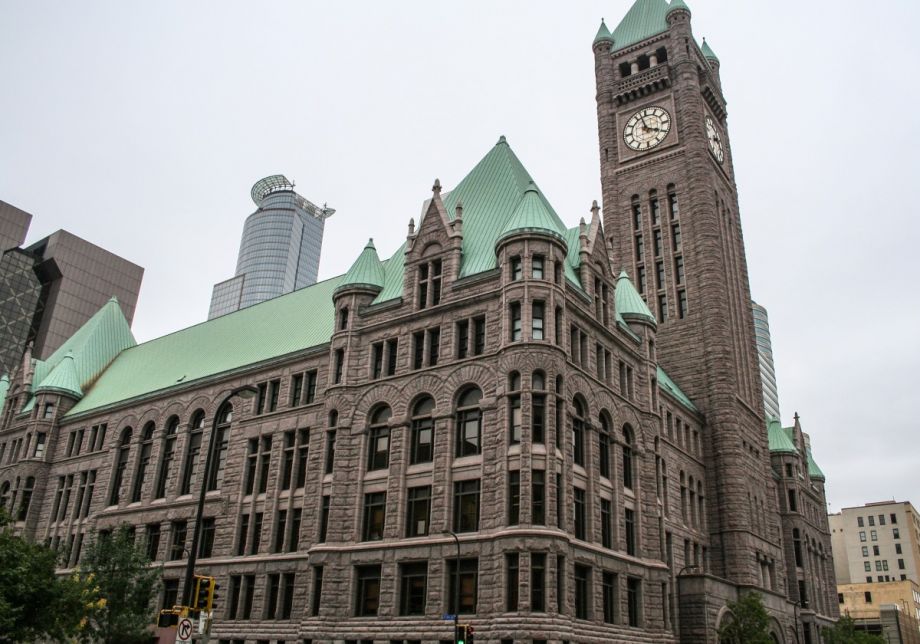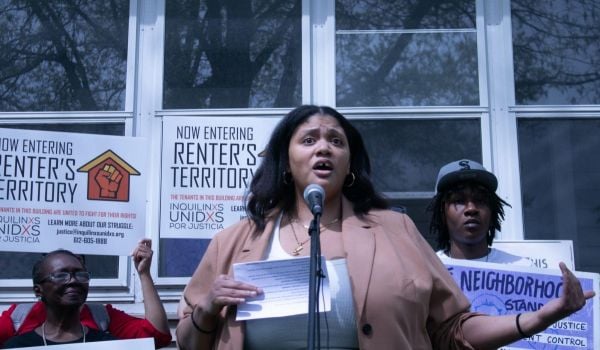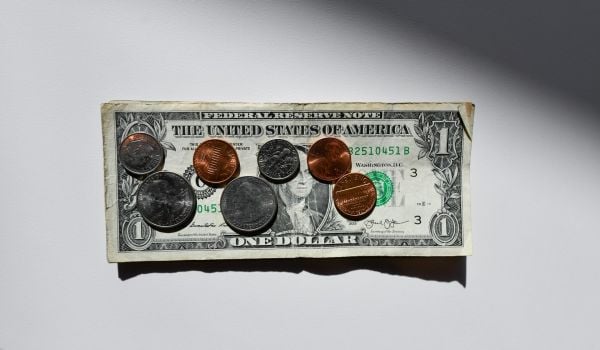When it comes to the “battles” rolling out across U.S. cities for a higher minimum wage, what’s going on in the Twin Cities area of Minnesota right now might just be the quintessential example of a front line in flux.
A Minneapolis coalition that includes 15 Now, Neighborhoods Organizing for Change and Centro de Trabajadores Unidos en Lucha (CTUL) presented 8,418 signatures to city officials on July 20 in support of putting a $15 city minimum wage on the ballot for November’s municipal elections, clearing the amount needed for consideration by a couple thousand. But it failed to pass the final hurdle after City Council members voted against putting the decision to the public as a proposition.
The groups sued the city; a judge ruled in their favor. The city appealed that ruling, and sent it up to the Minnesota Supreme Court, which set the law of the land at the end of August: a $15 minimum wage proposition would be up to the city council, who already made their voices heard.
Still, Stephanie Gasca, an organizer with CTUL, says she and others have no doubt an increase will soon become a reality. “It’s not a matter of ‘if,’” she says. “It’s a matter of ‘when.’”
Along with the coalition members and other equality advocates, Gasca is helping lead the push to get the city to look past the ballot proposition and put up a $15 minimum wage in the form of a local ordinance. Just last month, the state rolled out a two-tiered minimum wage increase: Big companies now have to pay $9.50 an hour and smaller ones will go up to $7.50 an hour. An August poll of 400 registered voters in the city showed majority support of a $15 minimum wage.
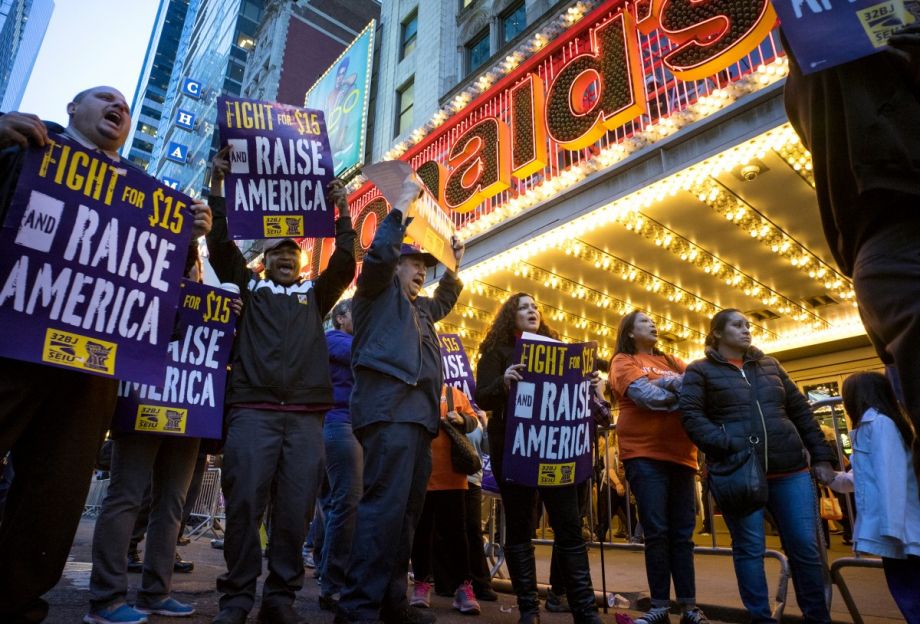
Protestors calling for a $15 minimum wage pause near a McDonald's in New York in April. (AP Photo/Craig Ruttle, File)
She’s been on the ground, speaking at rallies, interacting with the very people whose lives would change dramatically with an increase, like Guillermo Lindsay, a 28-year-old who’s worked at McDonald’s for 14 years.
When he started off, minimum wage was around $5.15. He says his wage has hardly nudged since then, despite rising profits from McDonald’s introduction of all-day breakfast in October 2015. “So after 14 years of experience, my wage only went up 4 dollars,” he says. “And personally, that’s not right.”
He spoke on a recent Monday in between shifts. That day, he had worked at McDonald’s from 6:30 in the morning until 3 in the afternoon. At almost 9 p.m., he was getting ready to head out to work a nine-hour graveyard shift at SuperAmerica, a gas station convenience store. His bedtime comes just before the sun reaches its highest peak in the day sky.
“We shouldn’t have to live like this,” he says. “To be constantly working our bodies. When is there time to see our children, when they get out of school? We’re too damn tired.” He does this double shift five days a week. What kills him most is that despite the hours, he can’t afford to get his 6-year-old son the occasional small gift — a candy bar, a kite, a bouncy ball.
“You have to pick and choose, pay your bills in full or feed your children,” he says.The Twin Cities region of Minnesota has one of the worst racial disparity profiles across the country, and throughout the state women and people of color disproportionately take up the bulk of low-wage jobs. In a CTUL survey of 173 low-wage workers in the area — janitors, fast food cooks and hotel clerks, among others — 80 percent reported that they had to work two jobs to afford a living, and the average wage of all respondents was $10.34 an hour. According to the Minneapolis Foundation, a family of four in the city needs to make a minimum of $40,000 a year in order to afford the most basic services, meaning “housing, food, clothing and transportation.”
With the “poverty wages” he says he takes home from both jobs every month, Lindsay and his small family of three are far off from the $40,000 mark. He’s active in picket lines, and after a recent meeting with McDonald’s stakeholders in Chicago, he was given a $1.25 raise — still not enough, but a sign to him that companies and lawmakers are tuned in to the $15-an-hour movement.
“They’re listening,” he says. “They’re hearing every voice. We constantly want to strike to let them know ‘I’m not afraid of you.’”
Economists differ on whether or not a $15 minimum wage will provide a boon or a bust to local worker economies. While it’ll drastically shrink wage disparities and help lift low-wage workers out of poverty, it also comes with the risk of layoffs of low-skilled workers in the short term once the $15 takes effect, which may in turn push more of this labor pool to search out underground economy jobs that pay unmonitored wages under the table.
But for Lindsay, it all comes back to the reality that for him and masses of other low-wage workers, it’s a matter of survival. “No one should have to live [on these wages]. Sixty-four million people should not have to live like that,” he says, referring to the estimate of wage workers in the U.S. making less than $15 an hour.
The Equity Factor is made possible with the support of the Surdna Foundation.
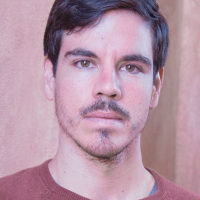
Johnny Magdaleno is a journalist, writer and photographer. His writing and photographs have been published by The Guardian, Al Jazeera, NPR, Newsweek, VICE News, the Huffington Post, the Christian Science Monitor and others. He was the 2016-2017 equitable cities fellow at Next City.


